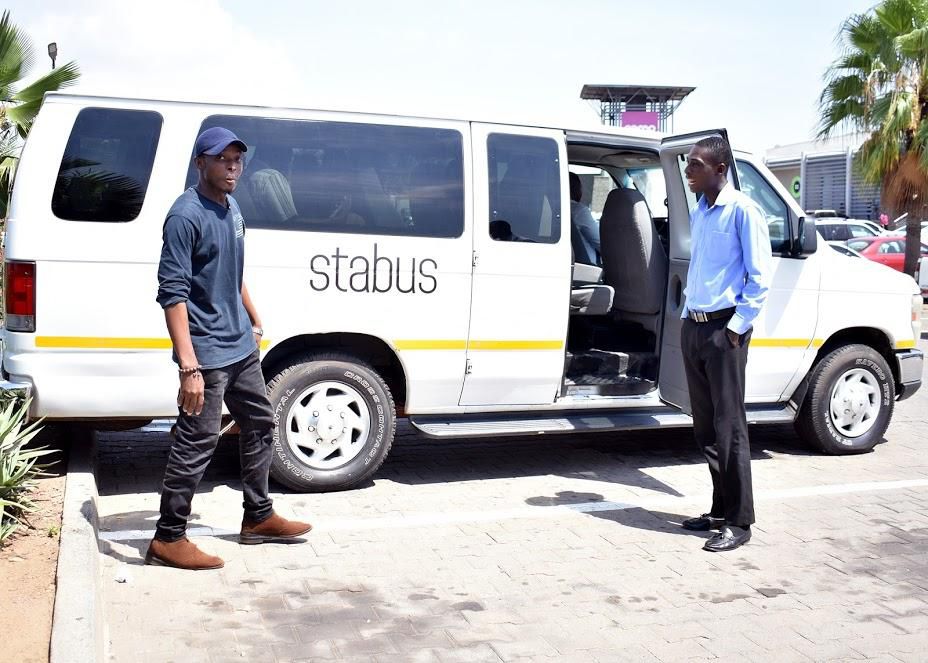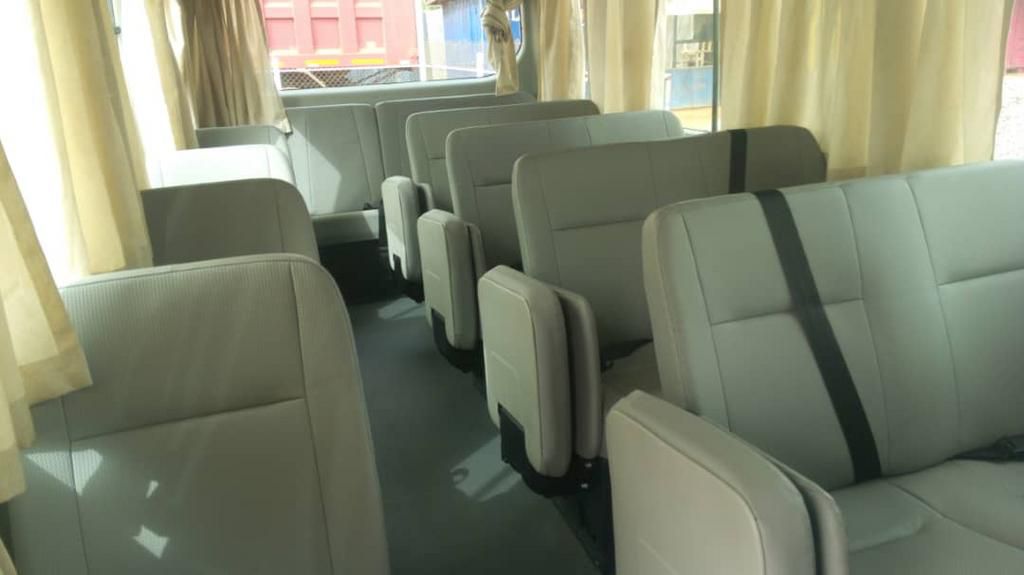Stabus: How this ride-hailing start-up is innovatively surviving despite COVID-19
)
In March when Ghana recorded its first COVID-19 case, very few envisage how astronomical its economic impact would be. Frankly, a lot has happened in the last four months.
The COVID-19 cases have since moved up from just two to over 20,000. Recoveries have been a bit encouraging, too, but over 100 patients have also died in the process.
In between, the government also imposed – and later lifted – a three-week partial lockdown in Tema, Accra and Kumasi. In all these, businesses, especially start-ups, have been the hardest hit.
Commercial drivers are now mandated to take less number of passengers as a measure to prevent a spread of COVID-19, and they are losing money.

The next in line are ride-hailing services, which seem to have seized the opportunity to attract more customers. The problem, though, is that the pandemic has caused more people to be cautious and very few step out of their homes, let alone charter these ride-hailing services.
As genuine as the fears of contracting COVID-19 are, a business must still go on. That is why some start-ups are finding innovative ways to operate, amidst the pandemic.
Stabus, a Ghana-based start-up, is one of these. The company provides safe and convenient rides to workers using private air-conditioned buses. For persons who do not want to go through the hustle of boarding a public bus (trotro) or are feeling comfortable driving, Stabus is the perfect solution.
Launched in November 2019, the company has already completed about 900 trips on six routes in Accra.
CEO of Stabus, Isidore Kpotufe, admits the business has been affected by the COVID-19 pandemic, but they are finding innovative ways of operating and cutting their losses.
“Pre-COVID-19, we were filling our buses to capacity and were focused on onboarding individual passengers. Just as COVID-19 is dictating new terms for many businesses, we have now evolved our business model to focus more on matching pools of employees of different companies with private buses,” Mr. Kpotufe told Pulse.com.gh.
While the transport industry is still reeling due to the global health crisis, Mr. Kpotufe insists Stabus is somewhat cashing in due to the quality of services they offer. It is obvious that, despite the directive to reduce the number of passengers, many Ghanaians are still shying away from boarding public transports, most of which are rickety and have poor hygiene conditions.

Starbus, Mr. Kpotufe said, offers the exact opposite. So, while the company is also taking fewer passengers now, its reputation as a safe transport operator has kept them above the other competitions (ie. Taxis, trotros etc).
“In principle, the pandemic has had a somewhat positive effect on our business,” he opines. “Our platform competes directly with informal buses, shared taxis and related. Many of our ideal users no longer feel comfortable using those services because of the poor hygiene conditions observed on those vehicles. This is where Stabus fills the gap. So, in essence, COVID-19 is serving as a wake-up call.”
On the specific measures put in place to ensure passengers are safe, he said: “The buses on our platform are regularly disinfected, we check the temperature of all passengers and provide them with hand sanitizer at the start of every ride. We also require all our users, passengers and drivers to wear face masks throughout their trips.”
As far as innovativeness comes, Stabus seems to be on top. Rather than just court passengers, they have also moved to close deals with companies, where they bus employees to and from work at discounted prices.
“We have started a program dubbed “Ghana Goes Back to Work”. With this program, we are working with companies to bring back their employees to the office by providing them safe and hygienic bus rides at discounted costs. “Trotros” are powerful conduits for the spread of the coronavirus,” Mr. Kpotufe explained.
“Unfortunately, many companies cannot afford the costs of acquiring or leasing buses to transport their employees. With our new offering, we are matching employees of different companies that commute along the same routes with private buses for a fixed monthly fee, starting from GHS280 per person. This innovation is helping us to stay relevant and at the same time empowering companies to reopen safely.
“We have also launched a cross-border delivery service that matches delivery packages with buses and cargo vans departing from Ghana to Togo, Benin, Nigeria and Cote d’Ivoire in an effort to boost trade amid COVID-19,” he added.
With such a smart CEO in charge, Stabus is likely to quickly graduate from a start-up to one of the biggest ride-hailing service providers in the country very soon. For even in such distressing times, the company is doing fine.
)
,fit(112:112))
)
)
,fit(112:112))
,fit(112:112))